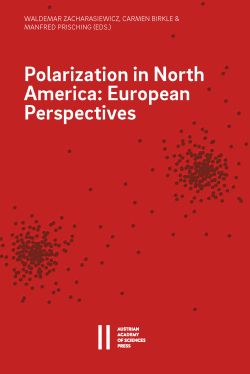 |
Polarization in North
|
 Waldemar ZACHARASIEWICZ is Professor emeritus of American Studies, Univ. of Vienna; full member of the Austrian Academy of Sciences Carmen BIRKLE is Professor of North American Literary and Cultural Studies at Philipps-Universität Marburg, Germany Manfred PRISCHING is Professor at the Department of Sociologie at the University of Graz |
doi: https://doi.org/10.1553/978OEAW93678
Sitzungsberichte der phil.-hist. Klasse 932 2023, 349 Seiten, broschiert, 22,5x15cm, englisch € 65,00 We are currently confronted with disconcerting signs of polarization in the societies of many democratic countries of North America and Europe. The storm on the U.S. Capitol on January 6, 2021, is only the tip of the iceberg of such developments. Conflicts are manifest between the generations and the genders, between ethnic groups in individual countries and between religious denominations, between migrants and the residents of countries, between the so-called elite and the average citizens, between the urban and rural populations. This interdisciplinary volume offers contributions by sociologists and historians, scholars in American and Canadian literary and cultural studies, linguists and philosophers, who, from a distinctly European perspective, analyze these highly topical areas of conflict. Historical views reveal that polarization in North America is not an exclusively recent phenomenon but has developed at least since the seventeenth-century colonial settlements in the New World. … |
 |
Verlag der Österreichischen Akademie der Wissenschaften Austrian Academy of Sciences Press
A-1011 Wien, Dr. Ignaz Seipel-Platz 2
Tel. +43-1-515 81/DW 3420, Fax +43-1-515 81/DW 3400 https://verlag.oeaw.ac.at, e-mail: verlag@oeaw.ac.at |
|
||||||||||||||||||||
|
DATUM, UNTERSCHRIFT / DATE, SIGNATURE
BANK AUSTRIA CREDITANSTALT, WIEN (IBAN AT04 1100 0006 2280 0100, BIC BKAUATWW), DEUTSCHE BANK MÜNCHEN (IBAN DE16 7007 0024 0238 8270 00, BIC DEUTDEDBMUC)
|
